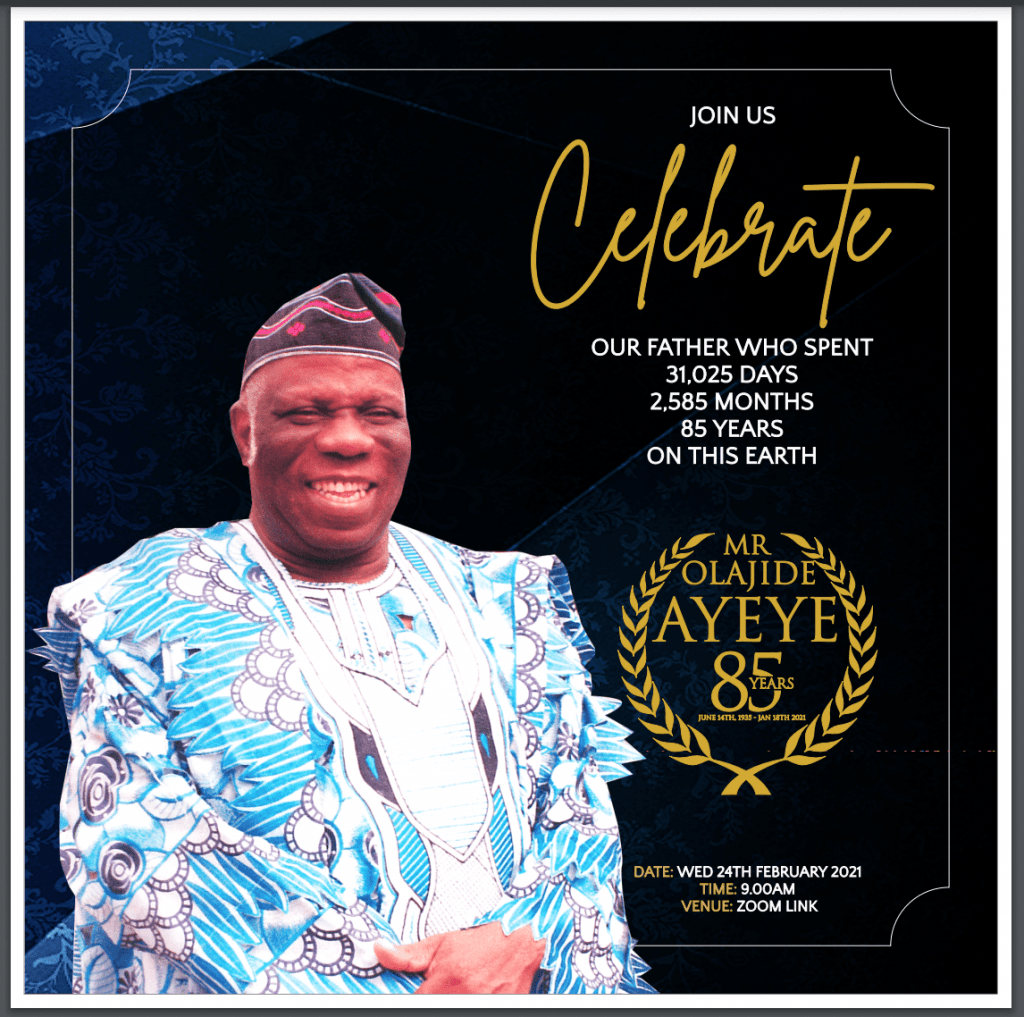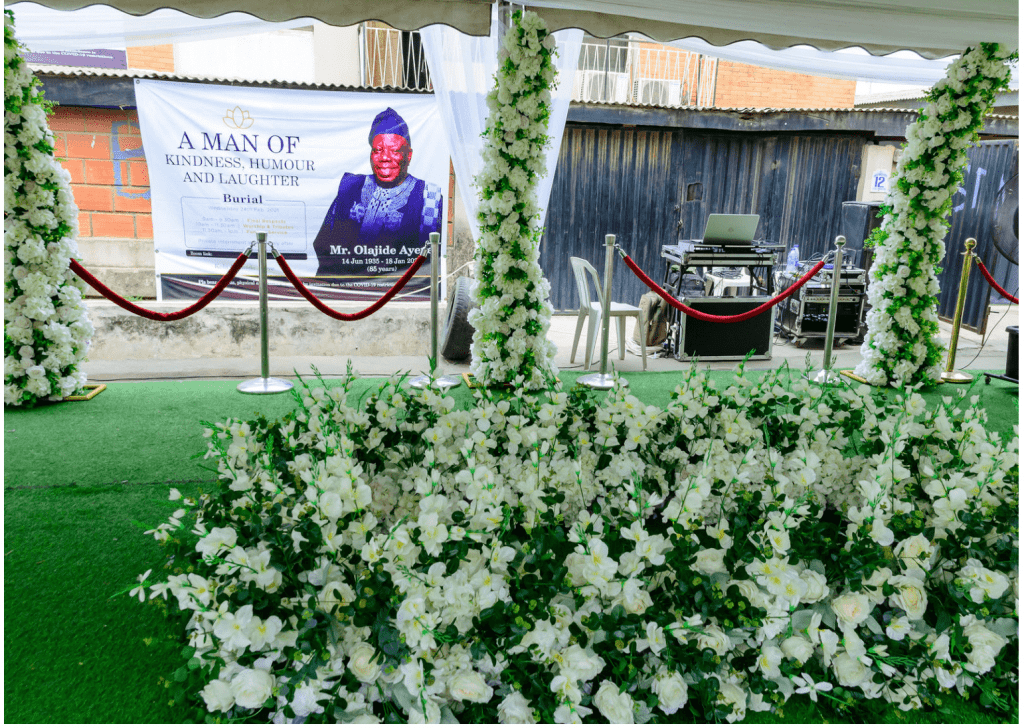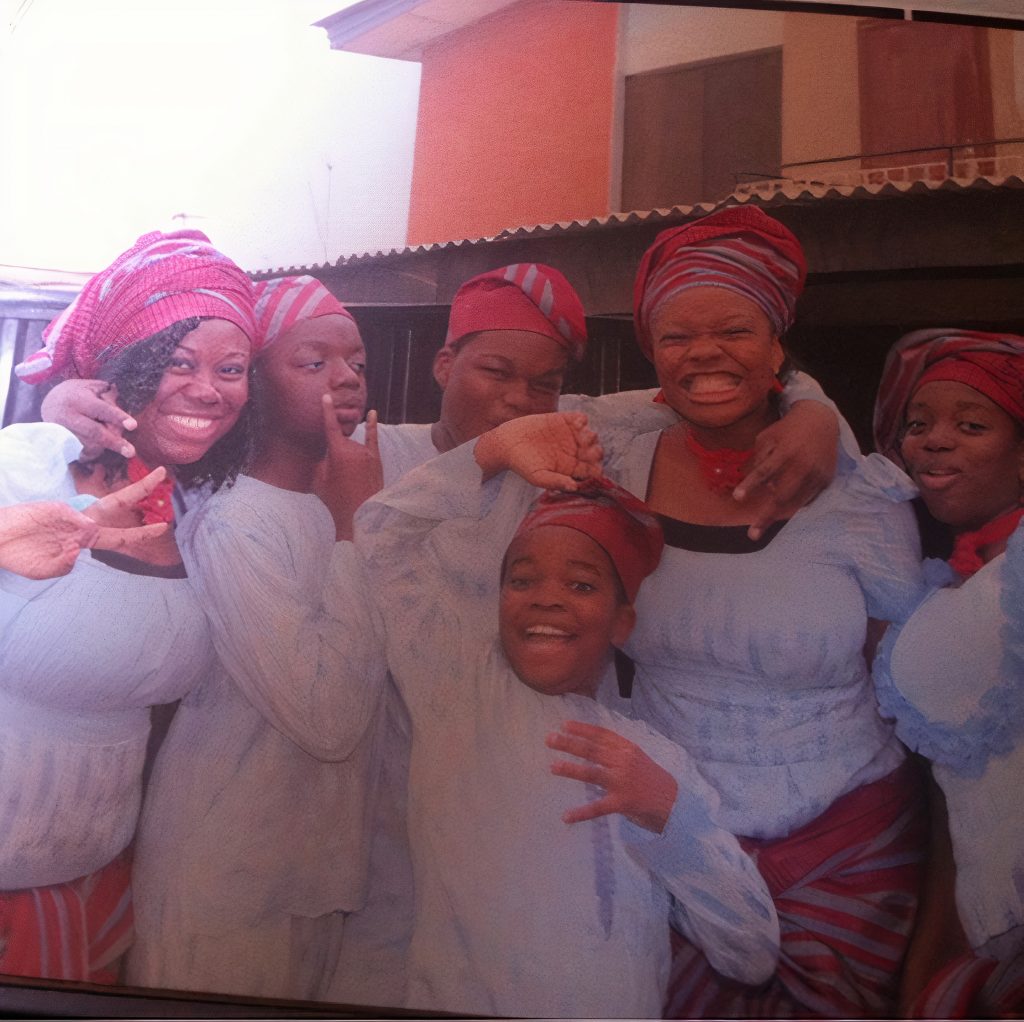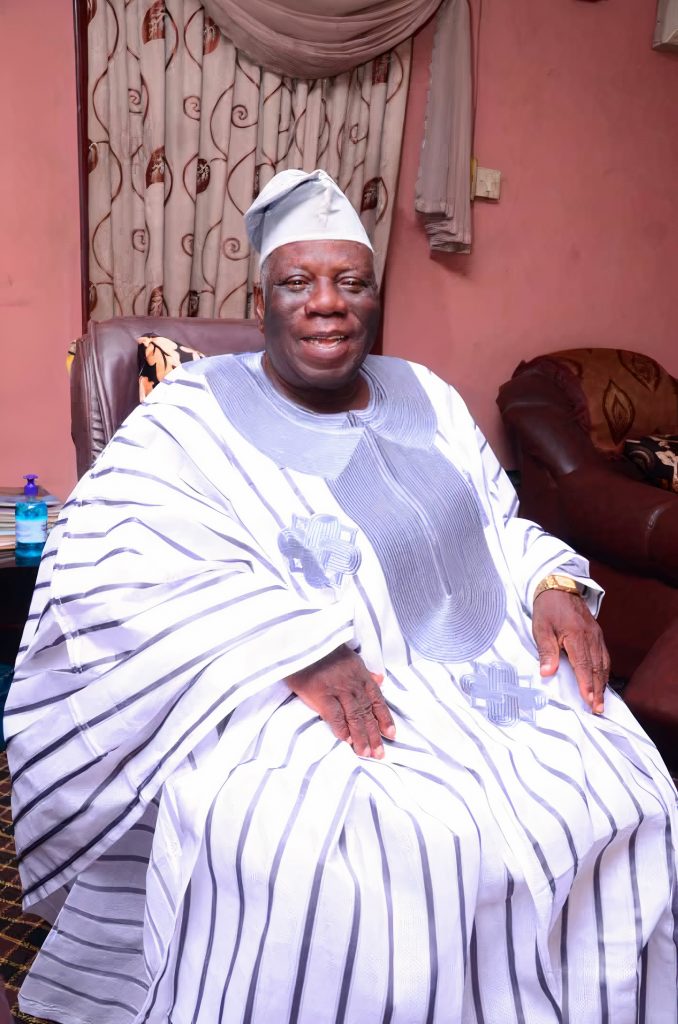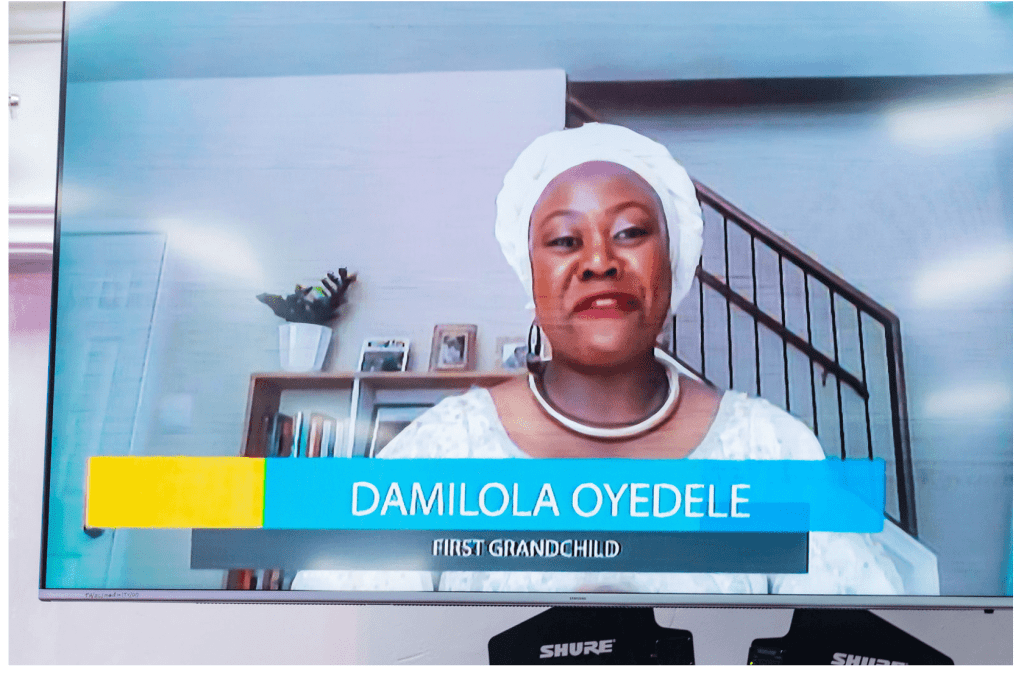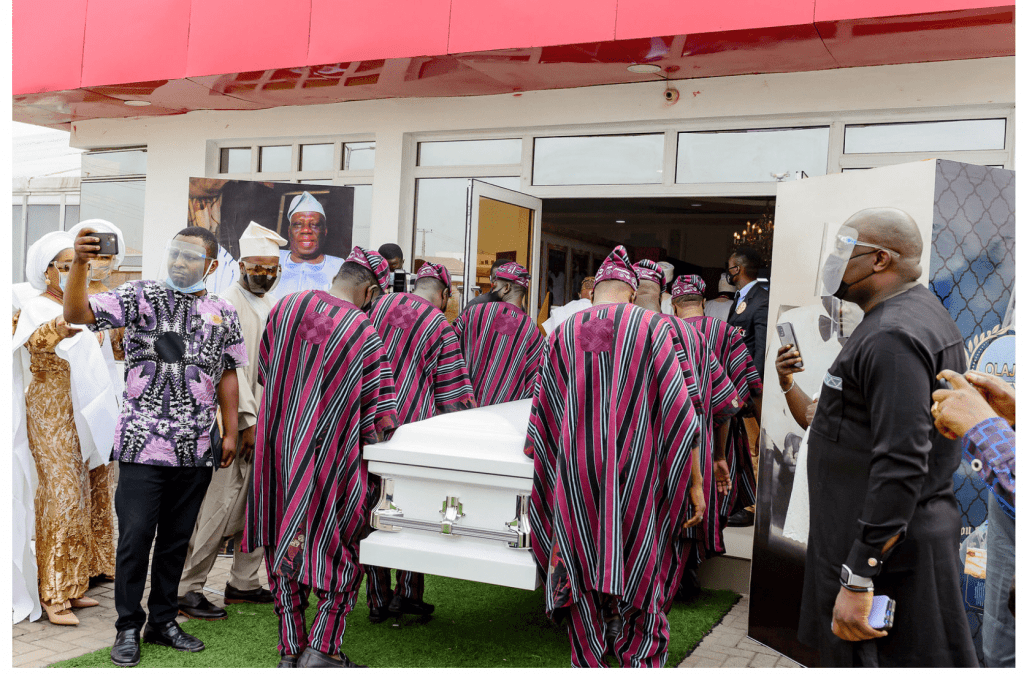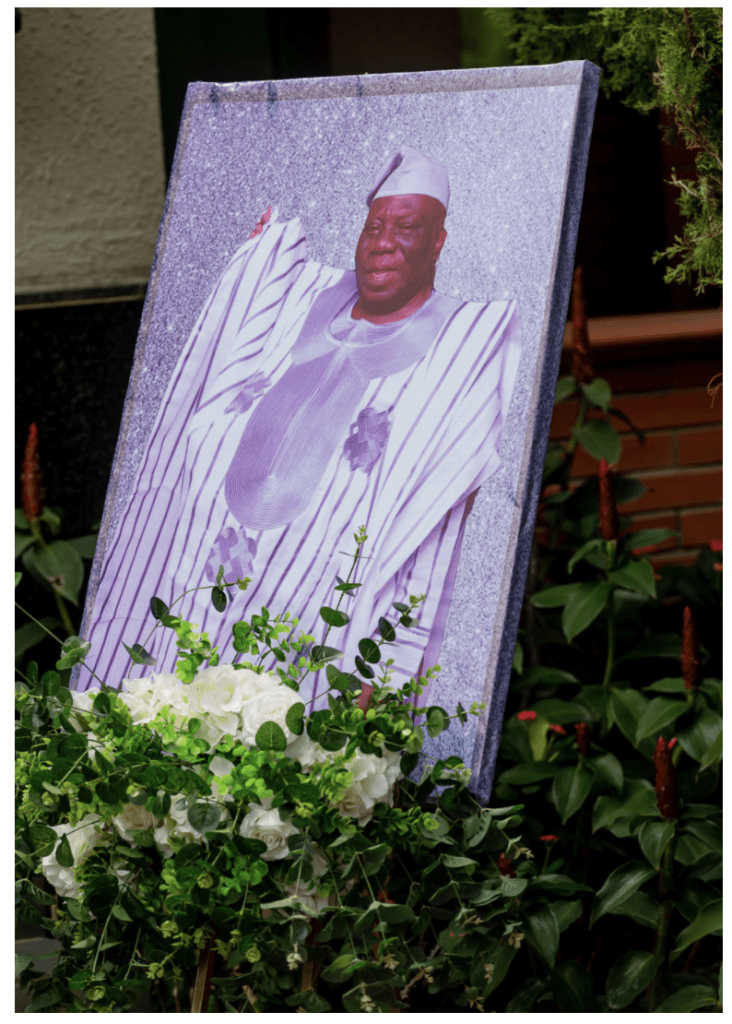My grandfather passed away from COVID-19. Not being able to grieve physically with my family due to the pandemic’s lockdowns was cruel irony.
The Black Atlantic is our newest column for nuanced, human stories about the Black experience around the world. Send your story.
Texas, United States
‘The sun is shining way too bright’, I think, shaking my head as I leave E’Shee Nail Spa. I’ve spent the past hour getting a mani-pedi. It is a Sunday afternoon in February, just a week after the Texas ‘snowpocalypse’, and the widespread inches of freezing slush from days ago have all but vanished. I look at my watch and decide I will have to join the family Zoom meeting from my car. I’ll end up late if I try to head home, and no restaurant in the strip mall looks appropriate for taking a video call that might end in tears. After several frosty days and nights without power or water, I’m looking forward to seeing the faces of my extended family in Nigeria and abroad. The absurdity of a dazzling clear sky just days after a record-breaking winter storm mirrors my conflicted feelings. My family gathering is to plan a ‘Celebration of Life’ for our grandfather, who passed away from COVID-19 on January 18.
Participating in funeral planning and ceremonies from six thousand miles away is uniquely mind-bending; such is a key tragedy of the COVID-19 pandemic. Beyond claiming four million lives globally (two thousand of whom are Nigerian) as I write this, the separation the pandemic foists on millions of ailing and bereaved people at the very time they need to be with loved ones the most, is insult to injury. As I dial into the first of many Zoom calls for my grandpa, I wrestle with the cruel irony of being apart from my family. Slowly, a question invades my already fraught mind: is the physical distance I am experiencing in my grandfather’s illness and death reflective of our relationship?
Two types of memories are unearthed when a loved one passes: the collective and the personal. Collective memories are events and personality traits which are full of hearsay, thrive on telling and re-telling, and take on a life of their own over time. Personal memories are private proof that the departed not only lived, but that we met them, knew them intimately, and were touched by them in specific, singular ways. In the weeks after my grandfather’s death, my family’s collective memory flourishes as we reminisce on his tireless humour and dapper style. My uncles set up a memorial website for him, and I refresh it daily, reading tributes. A few words recur, including ‘kindness’, ‘generosity’, ‘humour’, ‘laughter’, ‘wit’, and ‘wise cracks’, but I find myself pushing back against this collage, searching for private proof that I really knew him, that he was not a caricature, that he was three-dimensional to me.
For days, I am unable to craft my own memorial, yet I feel pressure to create something tangible, to claim space in an unfolding series of events that seem remote, unreal. Finally, I force myself to draft and post a tribute full of longing about the things I will miss about him—his humour, his routines, our phone calls, and his style. Is there room for grieving over such sporadic, mundane things such as these? Our transatlantic phone calls, for example, lasted no longer than three minutes on average, sometimes under a minute. I would ask about his health and the lively neighbours he often watched from the balcony of his house; he would ask after my brother, Akin; we would hang up. I feel unsatisfied with my tribute and think about how to grieve him well. I question myself, absurdly: ‘what is the proof that he was my grandpa?’
I’m afraid that each image I push past will unearth a fuzzier one; that my attempt to remember him will unspool before I get to a tangible definition of who he was to me. Flushing my mind of other people’s recollections, I ask, akin to Jesus of Peter in the Bible, a less absurd question: who do you say grandpa is? Thus, I examine my tethers to him. We did not share a last name, and our most direct connections were his daughter, my birth mother, and his wife, my grandmother, now 28 and ten years deceased, respectively.
After the Sunday Zoom call, I create a WhatsApp group to coordinate with Akin, Bolu, and Jore, my brother and cousins, who are also going through these events remotely. ‘Hey guys, can you confirm with me whether you’re able to use a special Zoom background? Asap please! Thank you,’ I post in the group chat. As the oldest grandchild, I’m responsible for ensuring we all record and send in our assigned anecdote on a unique aspect of our grandfather’s personal history, and a Bible reading. We will record our speeches fully dressed in aṣọ ẹbí couriered to us through DHL. Before I begin recording, I spread out my gèlè in reverence, examining the woven cream fabric that all the women in the family will wear; tangible evidence that I am part of my grandfather’s lineage.
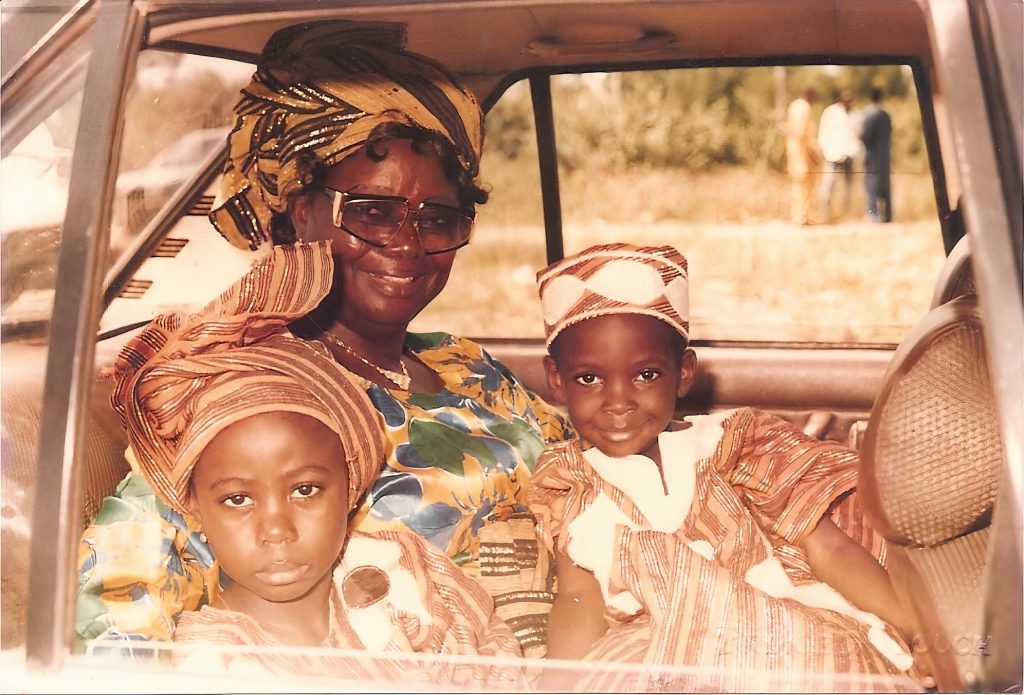
A childhood photograph of Damilola and her brother, Akin, with their grandmother. © THE AYEYE FAMILY
As a patriarch, my grandfather was the quiet backbone. While my mother’s side of the extended family lived in Lagos, my parents, brother, and I lived in Ibadan. After my mother’s passing, my grandmother visited Akin and I bi-weekly, bearing her signature chicken stew, jollof rice, the now virtually extinct original Royal Dansk Danish butter cookies, and gifts. She made the Lagos-Ibadan trip for many years, unfailingly, mostly alone with a driver. As I grew older, I thought of her love to be more visible and dynamic, and my grandfather’s to be a muted, stable energy which I experienced on holidays spent in Oshodi, the neighbourhood where my grandparents lived, and which in my family became synonymous with them over the years. In spite of my grandfather’s affinity for his home, before I went to university in 2016, he and my grandmother travelled to Ibadan to fight for me. They showed up, pulled their weight, and cleared a path, ensuring that whether or not the other adults in my life approved, I could prioritize the future I wanted for myself. That year I came of age, and my grandfather was visible, vocal, and shielding as I embraced my freedom.
One morning in August last year, he broke our phone routine by calling me around 3 a.m. my time, sighing after I greeted him in a croaky voice.
‘You came to my mind during the night,’ he said. ‘When are you going to do this thing?’
‘Which thing, Grandpa?’
‘When are you going to marry?’
I burst into awkward laughter. It was no surprise that my grandfather wanted to live to see me get married. A few years before that early morning call, he had explicitly asked me to ‘get it done while I’m still alive’, and many years before that, had offered an incentive—a brand new car as my wedding gift.
The last time I spoke to him on the phone, a video call while he was in hospital, his back was propped against navy pillows and his eyelids hung heavy. If he had even the slightest of smiles on his face, I could not see it, as the lower half of his face was hidden behind an oxygen mask. His caretaker held the phone up as I enthusiastically told him to get better.
‘Grandpa, ẹ má f’ará lẹ̀,’ I said, pushing past the lump in my throat, scrambling with my limited Yoruba lexicon, desperate to convey the depth of my desire to see him back on his feet.
He nodded.
After I hung up, I prayed a seemingly selfish prayer: ‘God, please let grandpa live to see me walk down the aisle.’
The last time I visited Oshodi was in December 2019, pre-COVID. I was in Lagos for my best friend’s wedding, and I delayed visiting my grandfather till the very last day and moment possible. We sat and talked for a bit, and then he asked about my plans for the day. Innocuously, I mentioned wanting to head to Surulere to say a quick hello to an old mentor before heading to the airport, and without missing a beat he asked me take his car and driver, and to let his caretaker accompany us. In that moment, I felt like a prodigal daughter, discovering too late that I had stayed away from my grandfather to my own detriment. I had wasted weeks hopping around on rideshare apps and even braving a dangerous okada ride to Ikoyi when my rideshare broke down in the middle of Third Mainland Bridge. As I knelt to thank him and say goodbye, I determined that on future trips to Lagos, his house would always be my first stop. That ended up being the last time I saw him in person.
I am up at 1 a.m. (CST) to prepare for the funeral service and internment ceremony. Our celebration of life planning is in full swing, and we are paying our last respects in a beautiful ceremony that will go viral, though we do not know it yet. Participating on Zoom, with an online audience of hundreds, is surprisingly fun. Private messages from attendees saying how well loved my grandfather was and how happy they are to see me on video help me get through. But as soon as his casket’s glossy white and silver trimmings come into view on camera, I start to cry.
After a short break from the service, I am back in front of my work-from-home computer screen watching the live final rites at Vaults and Gardens, Ikoyi, and recording it on my phone. Members of my family are in front of an open grave, dressed in cream and gold and white, paying their last respects. Singers from my uncle’s church choir are belting out Mercy Chinwo’s ‘Excess Love’ and I find it both distracting and sad. As the pallbearers begin to lower the casket, I shake my head. The whole thing is unbelievable, unfair, bizarre.
My grandfather’s best friend, Uncle Agbo, is wearing a light blue agbada and the saddest face of all, the latter being visible even with a mask on. Uncle Agbo waves goodbye to his friend as the casket is lowered; the image is imprinted in my memory. I shake my head again. Ashes to ashes, dust to dust.
A few weeks after the funeral, my cousin Jola and I catch up. She lives in Lagos and was able to witness it all in person. I scrape for details of the wake keeping which happened at my grandfather’s house, desperate for a collective memory of the one event which I could not Zoom into. It was socially distanced, beautiful, well attended, she says. The event took up the whole street; the front of his house was lined with flowers and decorated with wreaths. She recounts my grandfather’s neighbours’ glowing testimonials, the biggest surprise being how the Christmas before he fell ill and passed, he sent bags of rice and tubers of yam to each household, a show of love after a tough pandemic year. ‘I started crying as we drove out of Oshodi. It’s like, the end of an era,’ she says.
‘I get it,’ I say⎈
The views, thoughts, and opinions published in The Republic belong solely to the author and are not necessarily the views of The Republic or its editors. We want to hear what you think about this article. Submit a letter to the editors by writing to [email protected].



